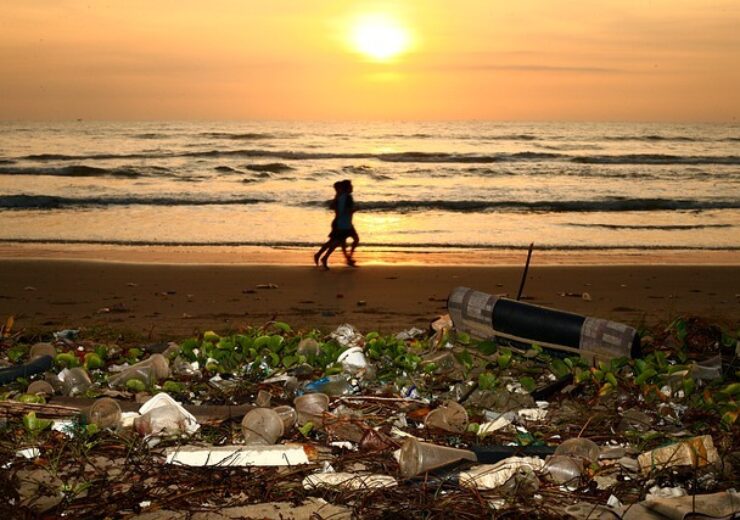Eastman joined some of the world's leading businesses in signing the New Plastics Economy Global Commitment, and it is a founding signatory to the U.S. Plastics Pact, which is a collaborative led by The Recycling Partnership and World Wildlife Fund in partnership with the Ellen MacArthur Foundation

Eastman joins two organisations to solve the plastic waste crisis. (Credit: Sergei Tokmakov, Esq. from Pixabay)
As part of its dedication to create a more circular economy, Eastman has joined two organizations – the Ellen MacArthur New Plastics Economy Global Commitment and the U.S. Plastics Pact – that unite members behind a shared vision to deliver solutions that address the plastic waste crisis.
Eastman joined some of the world’s leading businesses in signing the New Plastics Economy Global Commitment, and it is a founding signatory to the U.S. Plastics Pact, which is a collaborative led by The Recycling Partnership and World Wildlife Fund in partnership with the Ellen MacArthur Foundation. Signatories to the Global Commitment and Plastics Pact are united by real actions to create a future where plastic never becomes waste.
New Plastics Economy Global Commitment: Sharing ideas to solve a great challenge
“As we look at the climate and plastic waste crises, and drive towards a circular economy, we know we need to work with partners to solve these significant world problems, and the Ellen MacArthur Foundation is a great partner,” said Mark Costa, Eastman Board Chair and CEO. “And that’s why we’re so excited to sign the New Plastics Economy Global Commitment. It’s important to be able to work with so many different companies around the world, sharing ideas and collaborating to take on this challenge.”
The New Plastics Economy Global Commitment includes not only plastics producers but also businesses like Apple, H&M, Coca-Cola and Unilever, as well as governments, non-governmental organizations, universities and other organizations.
Signatories to the organization commit to eliminating all problematic and unnecessary plastic items; to innovating to ensure that the plastics we need are reusable, recyclable or compostable; and to circulating all plastic items we use to keep them in the economy and out of the environment. Visit the New Plastics Economy Global Commitment to learn more.
Eastman is taking real action now to contribute to a future of infinite plastic reuse. The company launched molecular recycling technologies at commercial scale in October 2019, and these two technologies enable Eastman to recycle almost any kind of plastic waste, including hard-to-recycle plastics, an infinite number of times. Later this fall, Eastman will announce new sustainability goals with definitive commitments for mainstreaming materials circularity and mitigating climate change.
The U.S. Plastics Pact: Driving an expansion of global recycling capacity
Eastman also became an activating member of the U.S. Plastics Pact because this initiative will help the country rethink and reimagine the recycling infrastructure and support Eastman’s own commitment to drive the circular economy. One of the world’s leading providers of specialty polymers, Eastman is already working with brands that have adopted Eastman Renew materials in their products. Renew materials leverage molecular recycling technologies to lower greenhouse gas emissions and divert plastic waste from landfills.
More than 60 activating members signed onto the U.S. Plastics Pact, which includes government agencies, NGOs and companies such as Walmart, Coca-Cola, Target and Unilever.
“Our purpose is to enhance the quality of life in a material way,” said Scott Ballard, Vice President and General Manager of Specialty Plastics at Eastman. “But we can’t do it alone. By making commitments to the U.S. Plastics Pact, and to EMF, we’re committing to something bigger than ourselves. We’re looking for global policy changes, infrastructure creation and partners to join us in creating solutions that mainstream circularity.”
As a material supplier and activating member, Eastman is proud to support the U.S. Plastics Pact to achieve four ambitious goals by 2025:
Define a list of packaging to be designated as problematic or unnecessary by 2021 and take measures to eliminate them by 2025.
All plastic packaging to be 100% reusable, recyclable, or compostable.
Undertake ambitious actions to effectively recycle or compost 50% of plastic packaging.
The average recycled content or responsibly sourced bio-based content in plastic packaging to be 30%.
Source: Company Press Release
